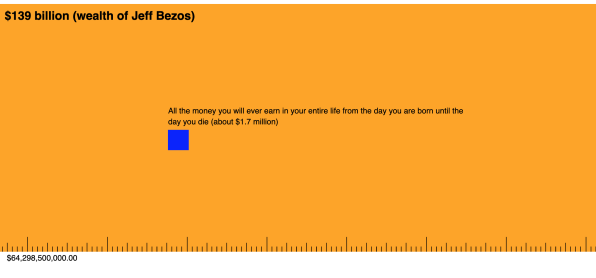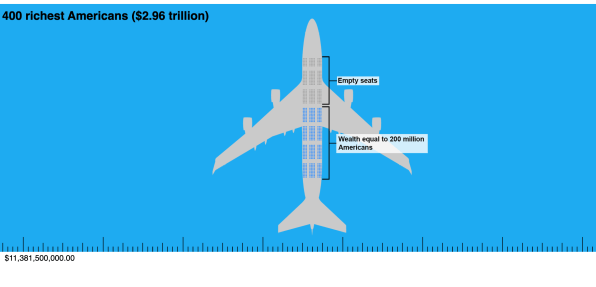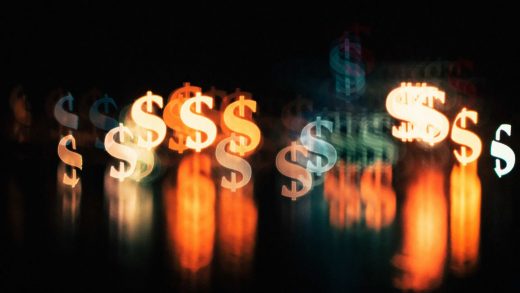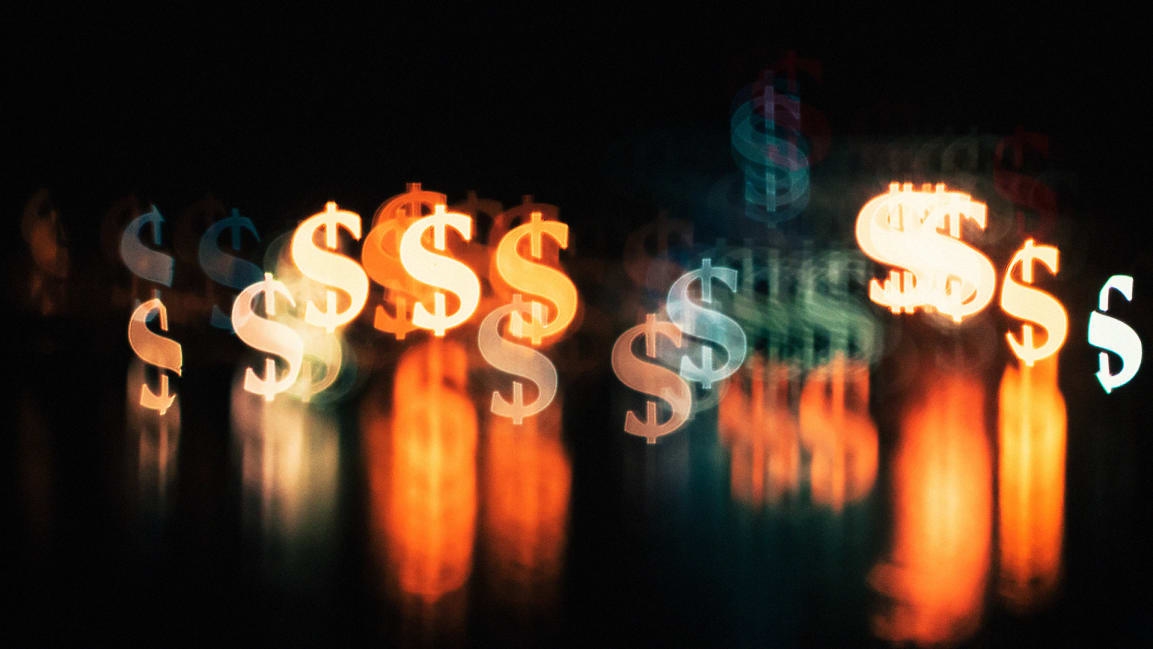Just how much more wealthy than you is Jeff Bezos? Scroll to find out
You may think you have a hazy understanding of Jeff Bezos’s wealth—$139 billion—but a new visualization makes it easier to grasp the scale. The interactive site starts with a single pixel representing $1,000, then a small box representing the average American salary of $63,179, and a massive rectangle representing $1 billion. Then comes a block representing Bezos’s money. Minutes later, you’ll still be scrolling through it.
“Jeff is so wealthy that it is quite literally unimaginable,” says the text on the site, created by developer Matt Korostoff. “We rarely see wealth inequality represented to scale. This is part of the reason Americans consistently underestimate the relative wealth of the super rich.”

As you continue scrolling through Bezos’s money, you’ll see more comparisons: the tiny amount of money you’re likely to earn in your entire lifetime, the annual pay for an Amazon worker, the annual cost of chemotherapy for all cancer patients ($9 billion, or the amount that Jeff Bezos earned in roughly 40 days in 2018). Even other rich people’s fortunes look tiny in comparison. Goldman Sachs CEO David Solomon’s estimated wealth of $50 million is a small square on the background of Bezos’s endless scroll. Tim Cook’s $625 million is a larger rectangle, but still quickly ends. The average lifetime earnings of doctors and lawyers are tiny squares.
“These people may see themselves as fabulously rich, and often oppose policies aimed at reducing inequality,” Korostoff writes on the site. “But many have not fully grasped the enormous gulf between themselves and the super rich. We can have a world in which wealthy people exist, without handing nearly all money to the super rich. No single human needs or deserves this much wealth.”

The visualization then looks at the even more incomprehensible $3 trillion held by the 400 richest Americans (if you don’t have all day to scroll, we recommend using the scroll bar at the bottom of the site). Then it begins to show how some of that money could otherwise be used. With 3% of the wealth, every American could be tested for the coronavirus. For the same amount, malaria could be eradicated globally, saving the lives of nearly 300,000 children every year. Spending 8% of the wealth could provide access to clean drinking water and toilets for everyone on earth. Spending roughly 5% of the wealth could give every family living in poverty in the U.S. $10,000, helping lift them out of poverty; even the onetime grant could have lasting effects.
Redistributing 85% of these billionaires’ wealth would “completely transform the world,” Korostoff writes. By redistributing this wealth, millions of lives would be saved. Billions would be rescued from poverty and disease. By inconveniencing just 400 people, the entire human race could advance to a new, unprecedented level of development. And all of them would still be billionaires afterward.
(36)



